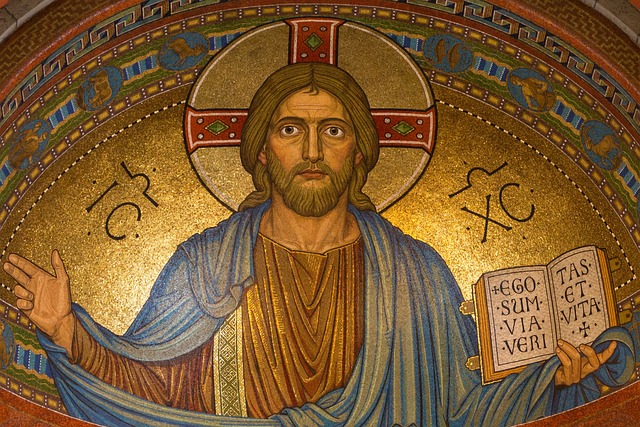An Ecumenical Council in the Catholic Church is a gathering of bishops and other Church leaders from around the world to discuss and make decisions on matters of doctrine, discipline, and governance within the Church. These councils are considered to be the highest authority in the Church and their decisions are binding on all members of the Church.
Table of Contents
History of Ecumenical Councils in the Catholic Church
Have you ever heard of an Ecumenical Council in the Catholic Church? If not, you’re not alone. Many people are unfamiliar with this term and what it entails. In this article, we will explore the history of Ecumenical Councils in the Catholic Church and shed some light on their significance.
Ecumenical Councils are gatherings of bishops and other ecclesiastical dignitaries from around the world to discuss and settle matters of Church doctrine and practice. These councils have been an integral part of the Catholic Church’s history for centuries, dating back to the early days of Christianity.
The first Ecumenical Council was held in Nicaea in 325 AD, convened by the Roman Emperor Constantine. The purpose of this council was to address the Arian heresy, which denied the divinity of Christ. The council produced the Nicene Creed, which affirmed the Church’s belief in the Trinity and the divinity of Jesus Christ.
Over the centuries, there have been a total of 21 Ecumenical Councils, with the most recent one being the Second Vatican Council, held in the 1960s. Each council has addressed different issues facing the Church at the time, from disputes over doctrine to matters of discipline and governance.
One of the most famous Ecumenical Councils was the Council of Trent, held in the 16th century in response to the Protestant Reformation. The council reaffirmed Catholic teachings on the sacraments, the priesthood, and the authority of the Church, among other things. It also initiated a period of reform within the Church known as the Counter-Reformation.
Another significant council was the First Vatican Council, held in the 19th century. This council defined the doctrine of papal infallibility, stating that the Pope is preserved from error when speaking ex cathedra on matters of faith and morals. This doctrine remains a point of contention between Catholics and other Christian denominations to this day.
Ecumenical Councils have played a crucial role in shaping the beliefs and practices of the Catholic Church. They have helped to clarify and define Church teachings, resolve disputes, and provide guidance for the faithful. While not all councils have been universally accepted or implemented, their decisions have had a lasting impact on the Church’s history.
In conclusion, Ecumenical Councils are an important part of the Catholic Church’s tradition. They have helped to maintain unity and orthodoxy within the Church, while also allowing for growth and development in response to changing times. As we look to the future, it is likely that more councils will be convened to address the challenges facing the Church in the modern world.
Purpose and Significance of Ecumenical Councils
Have you ever heard the term “Ecumenical Council” in the Catholic Church and wondered what it means? In simple terms, an Ecumenical Council is a gathering of bishops and other Church leaders from around the world to discuss and make decisions on important matters of faith and doctrine. These councils have played a crucial role in shaping the beliefs and practices of the Catholic Church throughout history.
The purpose of Ecumenical Councils is to address issues that affect the entire Church, such as defining and clarifying doctrines, resolving disputes, and addressing challenges facing the Church. These councils are seen as authoritative and binding on all members of the Church, as they are considered to be guided by the Holy Spirit in their deliberations and decisions.
The significance of Ecumenical Councils cannot be overstated. They have been instrumental in defining key aspects of Catholic doctrine, such as the nature of the Trinity, the divinity of Christ, and the role of the Church in salvation. Without these councils, the Church would lack a unified understanding of its beliefs and teachings, leading to confusion and division among its members.
One of the most famous Ecumenical Councils in Church history is the First Council of Nicaea, held in 325 AD. This council was called to address the Arian heresy, which denied the divinity of Christ. The council affirmed the Nicene Creed, which declares that Jesus is “true God from true God, begotten not made, consubstantial with the Father.” This declaration has been a cornerstone of Catholic belief ever since.
Another important Ecumenical Council was the Council of Chalcedon in 451 AD, which defined the nature of Christ as having two natures, one divine and one human, united in one person. This council helped to clarify the Church’s understanding of Christ’s identity and has been a key point of reference in theological discussions ever since.
In more recent times, the Second Vatican Council, held from 1962 to 1965, was a groundbreaking event that sought to renew and update the Church in response to the challenges of the modern world. This council addressed a wide range of issues, including liturgy, ecumenism, and the role of the laity, and its teachings continue to shape the life of the Church today.
Overall, Ecumenical Councils play a vital role in the life of the Catholic Church, helping to preserve and clarify its teachings, resolve disputes, and guide its members in living out their faith. These councils are a testament to the unity and diversity of the Church, bringing together bishops and leaders from different cultures and traditions to seek the guidance of the Holy Spirit in discerning the truth.
In conclusion, the concept of Ecumenical Councils is a central aspect of Catholic Church governance and theology. These gatherings have been instrumental in defining and clarifying key aspects of Catholic doctrine, shaping the beliefs and practices of the Church throughout history. By coming together in council, the Church demonstrates its commitment to seeking unity and truth in the midst of diversity and disagreement.
Key Decisions and Doctrines Established by Ecumenical Councils

Have you ever heard the term “Ecumenical Council” in the Catholic Church and wondered what it means? Well, you’re not alone! Many people are unfamiliar with this term, but it actually plays a significant role in shaping the beliefs and practices of the Catholic Church. In this article, we will explore what an Ecumenical Council is and discuss some of the key decisions and doctrines that have been established by these councils throughout history.
An Ecumenical Council is a gathering of bishops and other Church leaders from around the world to discuss and make decisions on matters of faith, doctrine, and discipline. These councils are considered to be the highest authority in the Catholic Church, and their decisions are binding on all members of the Church. The word “ecumenical” comes from the Greek word “oikoumene,” which means “the whole inhabited world.” This reflects the universal nature of these councils, as they bring together representatives from all corners of the globe.
The first Ecumenical Council was held in Nicaea in 325 AD, and since then, there have been a total of 21 Ecumenical Councils in the history of the Catholic Church. These councils have addressed a wide range of issues, from the nature of Christ to the role of the Church in the world. One of the most famous Ecumenical Councils is the Council of Nicaea, which produced the Nicene Creed, a statement of faith that is still recited by Catholics around the world today.
Each Ecumenical Council has produced a set of decrees and canons that outline the decisions made by the council. These decrees and canons are considered to be infallible, meaning that they are free from error and are binding on all members of the Church. Some of the key decisions and doctrines established by Ecumenical Councils include the definition of the Trinity, the nature of Christ, and the role of the Church in salvation.
For example, the Council of Chalcedon in 451 AD defined the nature of Christ as having two natures, one divine and one human, united in one person. This decision was crucial in shaping the beliefs of the Church and has been reaffirmed by subsequent councils. Another important decision was made at the Council of Trent in the 16th century, which addressed the Protestant Reformation and reaffirmed the authority of the Church in matters of faith and doctrine.
In addition to defining key doctrines, Ecumenical Councils have also addressed issues of discipline and governance within the Church. For example, the Council of Trent established guidelines for the training and education of priests, as well as rules for the conduct of clergy. These decisions have helped to shape the structure and organization of the Catholic Church and continue to influence its practices to this day.
Overall, Ecumenical Councils play a crucial role in shaping the beliefs and practices of the Catholic Church. Through their decisions and decrees, these councils have defined key doctrines, addressed issues of discipline, and reaffirmed the authority of the Church. While the number of Ecumenical Councils may be limited, their impact on the Church is profound and enduring. So the next time you hear the term “Ecumenical Council,” you’ll have a better understanding of what it means and why it is so important in the history of the Catholic Church.
Controversies and Debates Surrounding Ecumenical Councils
Have you ever heard the term “Ecumenical Council” being thrown around in discussions about the Catholic Church? If you’re not quite sure what it means, you’re not alone. Ecumenical Councils are gatherings of bishops and other Church leaders from around the world to discuss and make decisions on important matters of faith and doctrine. These councils have played a significant role in shaping the beliefs and practices of the Catholic Church throughout history.
The word “ecumenical” comes from the Greek word “oikoumene,” which means “the whole inhabited world.” This reflects the idea that Ecumenical Councils are meant to bring together representatives from all corners of the Church to ensure that decisions are made with the input and consensus of the entire community of believers.
The first Ecumenical Council was held in Nicaea in 325 AD, and since then, there have been a total of 21 Ecumenical Councils recognized by the Catholic Church. These councils have addressed a wide range of issues, from the nature of Christ to the role of the Church in the world. Some of the most famous councils include the Council of Nicaea, which produced the Nicene Creed, and the Council of Trent, which addressed the Protestant Reformation.
While Ecumenical Councils are meant to promote unity and consensus within the Church, they have also been the source of controversy and debate. One of the most contentious issues surrounding Ecumenical Councils is the question of papal infallibility. This doctrine, which was defined at the First Vatican Council in 1870, states that the Pope is preserved from error when he speaks ex cathedra, or from the chair of Peter, on matters of faith and morals.
This doctrine has been a point of contention for many within and outside the Catholic Church. Some see it as a necessary safeguard against error in matters of doctrine, while others view it as an unnecessary and potentially dangerous concentration of power in the hands of one individual. The debate over papal infallibility continues to this day, with some arguing that it has been used to suppress dissent and stifle theological debate.
Another controversial issue surrounding Ecumenical Councils is the question of authority. While the decisions of Ecumenical Councils are considered binding on all Catholics, there is often disagreement over how much weight should be given to these decisions. Some argue that the teachings of the councils are infallible and must be followed without question, while others believe that there is room for interpretation and debate.
Despite these controversies, Ecumenical Councils remain an important part of the life of the Catholic Church. They provide a forum for discussion and debate on matters of faith and doctrine, and help to ensure that the Church remains faithful to its teachings and traditions. While there may be disagreements and differences of opinion, the goal of Ecumenical Councils is always to promote unity and consensus within the Church.
In conclusion, Ecumenical Councils are gatherings of bishops and Church leaders from around the world to discuss and make decisions on important matters of faith and doctrine. While they have been the source of controversy and debate, they remain an important part of the life of the Catholic Church. By bringing together representatives from all corners of the Church, Ecumenical Councils help to ensure that decisions are made with the input and consensus of the entire community of believers.
Modern Relevance and Impact of Ecumenical Councils in the Catholic Church
Have you ever heard of an Ecumenical Council in the Catholic Church? If not, you’re not alone. Many people are unfamiliar with this term and what it entails. However, Ecumenical Councils have played a significant role in shaping the beliefs and practices of the Catholic Church throughout history.
An Ecumenical Council is a gathering of bishops and other Church leaders from around the world to discuss and make decisions on matters of faith, doctrine, and discipline. These councils are considered to be the highest authority in the Church, second only to the Pope himself. The decisions made at these councils are binding on all Catholics and are meant to guide the Church in its mission to spread the Gospel and uphold the teachings of Jesus Christ.
The first Ecumenical Council was held in Nicaea in 325 AD, where the Nicene Creed was formulated to combat the heresy of Arianism. Since then, there have been a total of 21 Ecumenical Councils, with the most recent one being the Second Vatican Council in the 1960s. Each council has addressed different issues facing the Church at the time, from disputes over doctrine to questions of discipline and governance.
The decisions made at these councils have had a lasting impact on the Church and continue to shape its beliefs and practices to this day. For example, the Council of Trent in the 16th century addressed the Protestant Reformation and reaffirmed Catholic teachings on the sacraments, the priesthood, and the authority of the Church. The First Vatican Council in the 19th century defined the doctrine of papal infallibility, asserting that the Pope is preserved from error when speaking ex cathedra on matters of faith and morals.
But what relevance do these ancient councils have for modern Catholics? Some may argue that they are outdated and no longer applicable to the Church today. However, the teachings and decisions of these councils continue to inform the beliefs and practices of Catholics around the world. The Nicene Creed, for example, is still recited at Mass every Sunday, reminding us of our shared faith in the Holy Trinity and the divinity of Jesus Christ.
Furthermore, the documents produced by the Second Vatican Council have had a profound impact on the Church in the modern world. The council called for greater engagement with the world and a renewed emphasis on the role of the laity in the Church. It also promoted ecumenism and dialogue with other Christian denominations and religions, seeking to promote unity and understanding among all people of faith.
In conclusion, Ecumenical Councils have played a vital role in shaping the beliefs and practices of the Catholic Church throughout history. While some may view them as relics of the past, their teachings and decisions continue to inform the faith of Catholics around the world. By studying and reflecting on the decisions of these councils, we can gain a deeper understanding of our shared faith and the mission of the Church in the modern world.
Conclusion
An Ecumenical Council in the Catholic Church is a gathering of bishops and other Church leaders to discuss and make decisions on matters of doctrine, discipline, and governance. These councils are considered to be authoritative and binding for all Catholics.


